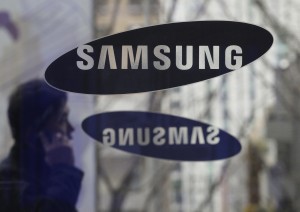SEOUL, South Korea—Samsung Electronics Co. said Monday it is delaying sales of its first Tizen-powered smartphone in the latest setback to the company’s ambition to create a mobile platform to rival Google’s Android or Apple’s iOS.
The South Korean company had planned to start selling the phone, the Samsung Z, in Russia this quarter. But Samsung indicated that more time is needed to expand Tizen’s following of app developers and apps.
In a brief statement, Samsung said the postponement is to further enhance the Tizen “ecosystem,” which encompasses developers, consumers and devices using the mobile OS.
The delay is a blow to Samsung’s push to reduce reliance on Google’s Android operating system, which powers Samsung’s Galaxy smartphones and tablets.
It did not announce a new release date.
About one third of smartphones are made by Samsung, but this ubiquity has not resulted in popularity for Samsung’s app store, which draws far fewer developers and users than those of Apple or Google.
Positive reviews for fast speed
The earlier sales plan for the Samsung Z was announced in June at a developers’ conference in San Francisco. Then, Samsung showed off prototypes of the Samsung Z, featuring a 4.8-inch high definition display, a fingerprint sensor for security and a slim, angular design. The prototype device received positive reviews for its fast speed for surfing the Internet and loading apps.
Tizen, Samsung’s second attempt at building its own mobile software, has suffered years of delays. In January, Japan’s largest mobile carrier NTT DoCoMo reportedly put off its plan to sell Tizen handsets.
Though smartphones based on Tizen are yet to hit shelves, Samsung has launched other products using the software in the last few months, including a smartwatch and a camera. It also had said Tizen will be used in TVs as well as in home appliances such as refrigerators.
However, a mobile device based on Tizen is a key product for attracting a substantial number of users and developers who would create apps that earn revenue for the developers and Samsung.–Youkyung Lee
